 Rather than discuss what I would tell my earlier self, I decided to write about what I tell my children.
Rather than discuss what I would tell my earlier self, I decided to write about what I tell my children.
From age six to about nine or ten, I spent my days with two turtles, Sammy and Willy. They travelled the ocean stirring up trouble, then mystically transformed into astronaut bears who made it an effort to visit all the forests of the universe and then somehow mutated into aliens that went to scout camp. My friends grew as I grew and helped me experience fantastical adventures.
When I wasn’t with my turtle-bear-alien friends, I explored the realms of Narnia and Middle Earth. I lived on a boxcar and ate fried worms. I travelled to Oz over and over again and eventually sailed with Captain Ahab.
I remember when I announced to my dad that I had discovered what I wanted to be when I grew up. I made my case:
– I was good at writing
– I loved it
– Other people liked reading my stuff
– And I was guaranteed to be successful because every book I had ever read was written by someone famous.
“Tell me one author that isn’t famous?” I demanded. He didn’t refute my claim, but persuaded me to go into the computer industry (we didn’t call it IT back then). I didn’t discuss my writer dream with others after that; I kept it tucked away in the back of my mind.
When I was a junior in high school, my papers were decorated in red with nice big Cs and Ds on top, quite the change from my sophomore year of A+s. From the encouragement of my tenth grade English teacher, I wrote more and took greater risks with my craft. My eleventh grade teacher didn’t like my exploring beyond the lines. I know I deserved the negative marks; I misused semicolons and my vocabulary wasn’t very strong, but the red ink didn’t teach me why my sentence structure suffered or how to fix it, just that it wasn’t good. During that year I slowly became disenfranchised with writing.
More than a decade passed. I didn’t go into IT, but business. Occasionally I’d hear my turtle friends calling from the recesses of my mind, begging me to let them out to play. I’d entertain them every now and then, but mostly I told them that I was too busy.
Another decade passed. A friend of mine from high school (quite possibly in that same English class) had a book published. My turtle friends woke up. Then I heard that my neighbor had written a short story for an anthology. I asked her about it.
“Do you write?” she asked.
“I used to.” Sort of. I want to. I really want to.
“If you’re serious about it, you should come to Superstars.”
My turtle friends begged to go and that was it. I was hooked, living my boyhood dream.
Since attending SWS, I’ve written a dozen short stories and one novel. I write everyday. I write a lot. I write to escape; I write to understand. I write for fun and for serious. But mostly I write to inspire.
A tribe helped free my turtles. I believe that It Takes a Tribe, to become a successful writer, as Nancy discussed earlier this month.
My son just turned nine. He’s been writing since the age of six. He’s fought dragons and explored alien worlds. He hangs out with friends known as the Knights of the Shadow Kingdom.
To him, I say, cheers. Write on my friend, write on.
Another son just started Junior High. He told me yesterday that he knows what he wants to be when he grows up—a photographer.
To him, I say, cheers. Let me know what I can do to help you. I believe in you.
Another son just started high school. Some of his teachers are “tough”. He tells me that their teaching is “all wrong”. We’ve explored his perception and identified that their teaching is—different.
To him, I say, cheers. Don’t get discouraged because you don’t understand. Fight to learn, fight to understand, and fight to be understood. And most of all, don’t let anyone tell you that you can’t do or be what you want. I’m here for you and support you. I know you can do it.
I think that the greatest thing we can do for young people is to get out of their way.
Unfortunately I can only go back in time in my stories. I would love to have not waited twenty years to do what I always wanted to do, but as the saying goes, it’s better late than never. Cheers. Write on my friend.

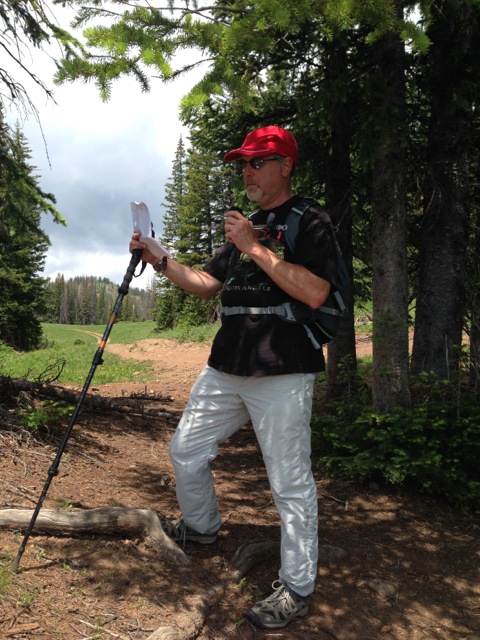 I write and publish four or more novels a year, and my creative office doesn’t have either a computer or a desk. It also doesn’t have the distraction of a constantly ringing phone, an endless succession of emails that need to be responded to (or marked as spam), doorbells to be answered with the latest UPS package of cat food from amazon prime (and the related distraction of cats who want me to feed them that food), or employees or family members who lie by assuring me “this will only take a minute.”
I write and publish four or more novels a year, and my creative office doesn’t have either a computer or a desk. It also doesn’t have the distraction of a constantly ringing phone, an endless succession of emails that need to be responded to (or marked as spam), doorbells to be answered with the latest UPS package of cat food from amazon prime (and the related distraction of cats who want me to feed them that food), or employees or family members who lie by assuring me “this will only take a minute.”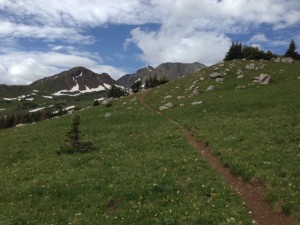 I have so programmed myself to write this way that now I find it very frustrating to sit my butt in a chair and stare at a screen for hours on end. When I’m walking, I am inspired by the landscapes in my beautiful Colorado. It may not be a genuine alien world, but I can imagine that—and all without the constant real-world distractions that harass a writer cooped up in a home office.
I have so programmed myself to write this way that now I find it very frustrating to sit my butt in a chair and stare at a screen for hours on end. When I’m walking, I am inspired by the landscapes in my beautiful Colorado. It may not be a genuine alien world, but I can imagine that—and all without the constant real-world distractions that harass a writer cooped up in a home office. The scenery itself is often inspirational, and when possible I try to be in a place that reminds me of what I’m writing. I’ve spent a lot of time in the Great Sand Dunes National Park in Colorado or Death Valley in California as I write my Dune novels with Brian Herbert; I’ve been in a snowstorm in the Sierra Nevada mountains while writing about Han Solo and Princess Leia on the polar icecap of a planet, and I spent time hiking around the Anasazi cliff ruins of Mesa Verde while writing about derelict alien cliff ruins in my Saga of Seven Suns.
The scenery itself is often inspirational, and when possible I try to be in a place that reminds me of what I’m writing. I’ve spent a lot of time in the Great Sand Dunes National Park in Colorado or Death Valley in California as I write my Dune novels with Brian Herbert; I’ve been in a snowstorm in the Sierra Nevada mountains while writing about Han Solo and Princess Leia on the polar icecap of a planet, and I spent time hiking around the Anasazi cliff ruins of Mesa Verde while writing about derelict alien cliff ruins in my Saga of Seven Suns.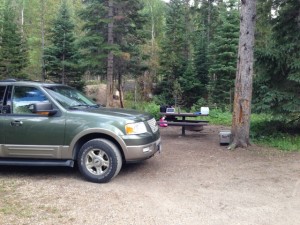 But sometimes I extend the getaway into a camping trip, so that I can really move my working office onto a picnic table out in a beautiful National Forest site. That’s where I’m writing this, sitting at a table under a lodgepole pine tree at a perfect campsite next to a river 85 miles up the Cache la Poudre canyon in northern Colorado. An extra battery for the laptop, and no internet connection, a growler of my favorite microbrew beer: It’s the perfect office, alone in the forest (except for a moose visitor who just walked through the campground), away from it all where I can concentrate on being in the worlds inside my head. It’s like taking a vacation in an exotic place with my imaginary friends.
But sometimes I extend the getaway into a camping trip, so that I can really move my working office onto a picnic table out in a beautiful National Forest site. That’s where I’m writing this, sitting at a table under a lodgepole pine tree at a perfect campsite next to a river 85 miles up the Cache la Poudre canyon in northern Colorado. An extra battery for the laptop, and no internet connection, a growler of my favorite microbrew beer: It’s the perfect office, alone in the forest (except for a moose visitor who just walked through the campground), away from it all where I can concentrate on being in the worlds inside my head. It’s like taking a vacation in an exotic place with my imaginary friends.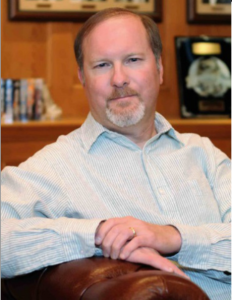
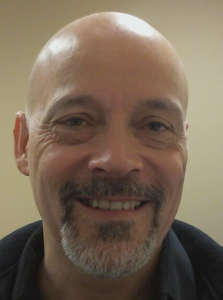 Guest Writer Bio:
Guest Writer Bio: 